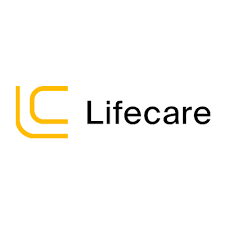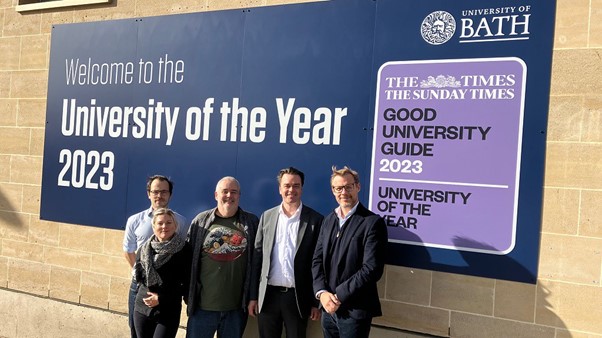The University of Bath is partnering with a Norwegian health tech company to improve its ground-breaking sensor technology used by people with diabetes.
Lifecare AS, which has just opened a UK head office in Bath, has developed the smallest glucose sensor in the world for continuous monitoring.

The size of a grain of rice, the Sencell sensor is implanted under the skin and relies on technology based on biological components.
While fully functional, its components have significant scope for enhancement – for example, their stability and shelf-life are areas for improvement. It could also be applied to other health-related conditions in the global market.
Prof Tony James from the University of Bath’s Department of Chemistry is working with Lifecare to provide expertise for advancing the implantable and minimally invasive glucose sensor.
He is developing more-reliable, glucose-specific chemical receptors, which will replace the existing bio-based receptors.
This will not only improve the quality assurance of Lifecare’s flagship product for diabetes patients in terms of its reliability but also halve its price.
Sustainability will also be improved with the senor needing to be replaced every six months instead of every few weeks.
Prof James, a Fellow of the Royal Society of Chemistry and the named inventor on 25 international patents, initially met Lifecare CSO Andreas Pfuetzner just prior to the pandemic in August 2019.

He said: “Andreas was stopping off in London for a business trip and I was fortunate to meet him to discuss potential opportunities for collaboration.
“It was clear that the technology was less than perfect for their glucose sensor and I was able to help address their challenges through the development of a new chemical system.
“It is exciting to be moving forward with the product which will hugely impact those who suffer from diabetes.”
Dr Jordan Gardiner, from Bath’s Department of Chemistry, has been working with Prof James and Lifecare – which is dedicated to research and development (R&D) of medical sensors for health monitoring – since January 2020 on the chemical sensors in the university’s lab.
Lifecare CEO Joacim Holter said: “Advancing our nano-pressure sensor system from biological to chemical receptors for glucose monitoring is very much welcomed at Lifecare.
“Our goal of contributing to help those with diabetes, which accounts for 537m people globally, is becoming more or a reality as a result of the world-class scientific expertise from the University of Bath.”
The team at Lifecare, which has been listed on the Oslo stock exchange since 2018, were recently at the university for a collaboration meeting.
This included the university’s Technology Transfer Office, led by Dr Phil Brown in Research and Innovation Services (RIS), which is supporting the innovative partnership.
Lifecare is also in discussion with the SETsquared Bath, part of the global number one-ranked university business incubator, to explore opportunities through its scale-up programme through collaborative R&D funding or private investment.
Pictured, from left: Jordan Gardiner, postdoc researcher, Bath; Barbora Tencer, Lifecare senior QMS manager; Prof Tony James; Joacim Holter, Lifecare CEO, Lifecare; and Asle Wingsternes, Lifecare head of communications



















